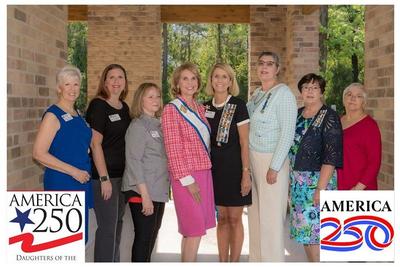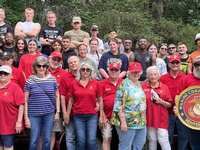- Sections :
- Crime & Public Safety
- Restaurants & Food
- Sports
- More
Houston scientist settles grant fraud allegations

HOUSTON, TX -- A local scientist and his southwest Houston invention and technology company have agreed to pay nearly $150,000 to resolve allegations they defrauded the National Science Foundation (NSF) and the Navy, announced U.S. Attorney Ryan K. Patrick.
Dr. Rouzbeh Shahsavari, 40, is the owner and chief scientist at C-Crete Technologies Ltd. in Stafford. Today, he has paid $147,589 to settle allegations they violated the False Claims Act.
“Fraud targeting grants and loans for small business development has an outsized impact on recipients and those left out,” said Patrick. “Some deserving and legitimate small business missed out because this man lied. The taxpayer is now being made right.”
Shahsavari and C-Crete allegedly made material misrepresentations to NSF and the Navy in applications for Small Business Technology Transfer (STTR) and Small Business Innovation Research (SBIR) awards in 2015 and 2016. STTR and SBIR programs are highly competitive federal programs. They are designed to encourage small, independent and domestically owned businesses through the investment of federal funds to conduct research and development in areas that further United States interests, including those concerning national health, welfare and defense. Only qualified small businesses that meet strict program requirements are eligible for awards.
STTR and SBIR award applicants are required to designate an employee as the principal investigator for the proposed research. His/her qualifications and credentials are a key component of award decisions. STTR award applicants must also have a subaward agreement with a collaborating research partner.
C-Crete and Shahsavari represented they had the mandatory agreement with Rice University. However, the investigation revealed they did not. They also failed to notify Navy personnel that their designated principal investigator had stopped working for C-Crete almost three months before the award was granted.
In both circumstances C-Crete was ineligible, but still accepted grant funds.
“It is imperative that federal award recipients provide true and accurate representations and certifications during all phases of the grant process,” said NSF Inspector General Allison Lerner. “The SBIR/STTR program is a valuable tool in advancing NSF’s mission to promote the progress of science by increasing opportunities for innovative research by small businesses. It is essential to protect the integrity of this program.”
NSF-Office of Inspector General and Naval Criminal Investigative Service conducted the coordinated investigation with the assistance of the U.S. Attorney’s Office. Assistant U.S. Attorney Julie Redlinger handled the matter.
The claims resolved by this settlement are allegations only. There has been no determination of liability.
















